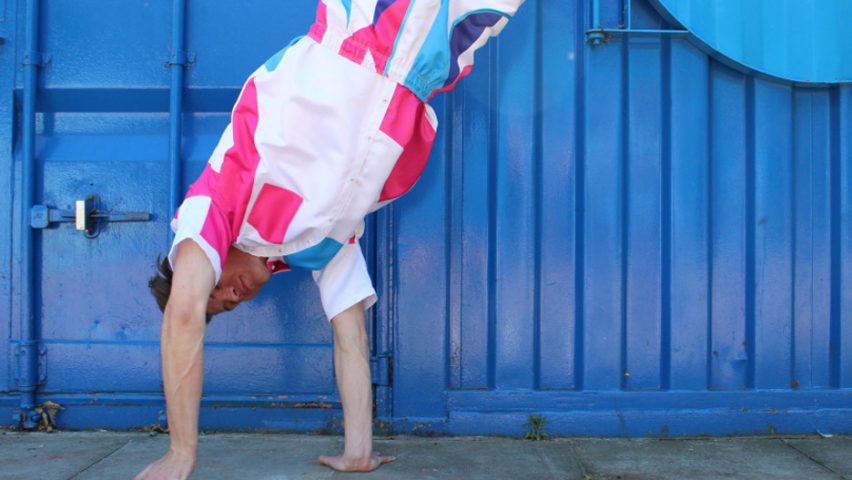
Danielle Elsener develops "zero-waste" design system to reform fashion industry
Royal College of Art graduate Danielle Elsener has created a toolkit to help fashion designers reduce waste and save "an insane amount of money" through more efficient pattern cutting.
The project, which was recently declared the winner of Virgil Abloh's sustainable design programme in partnership with Evian, consists of a system of tools and workshops that aims to eliminate the 15 per cent of material wasted in the production of an average garment.
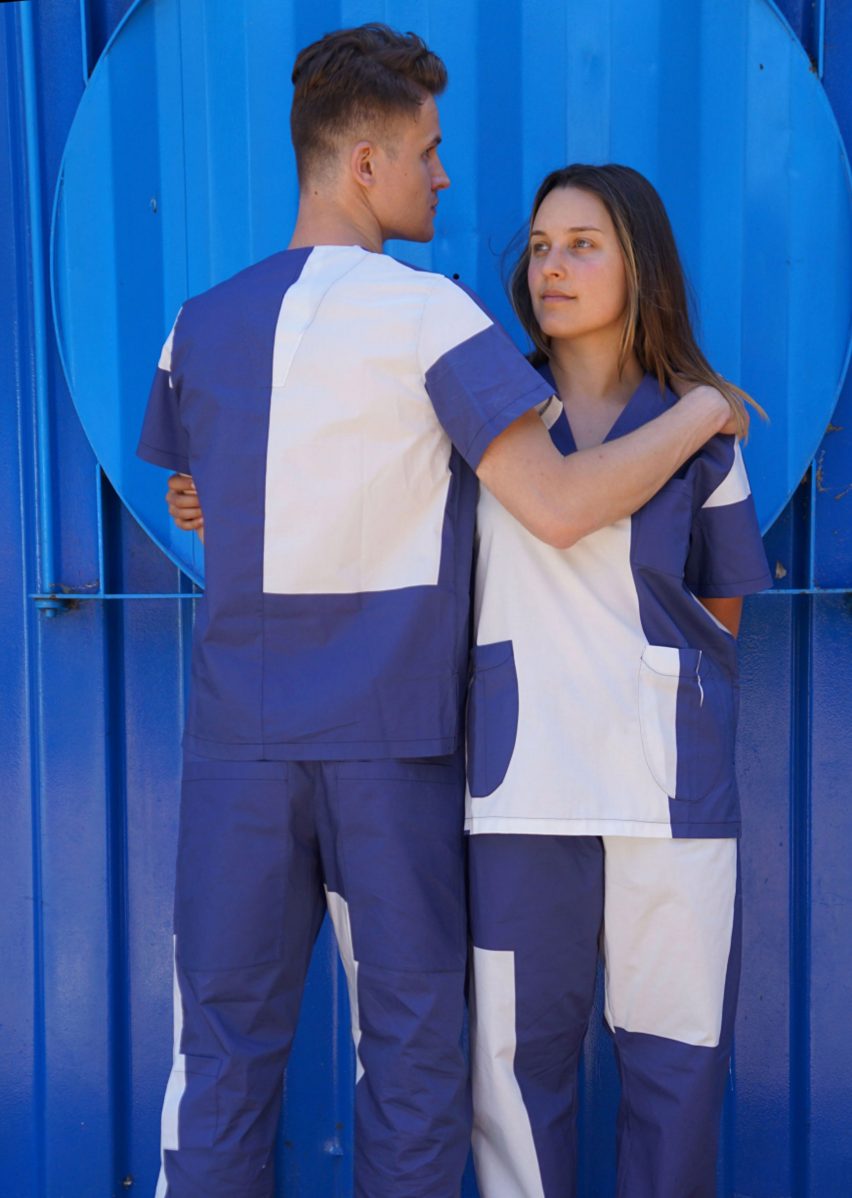
"When creating zero-waste designs, there are so many limitations at each stage of the manufacturing process that creating a whole system is the only real way to move the industry forward at the pace it needs," Elsener told Dezeen.
"While creating beautiful, timeless garments is a passion and an amazing skill, sharing a system of creation allows a whole new generation of designers to think differently."
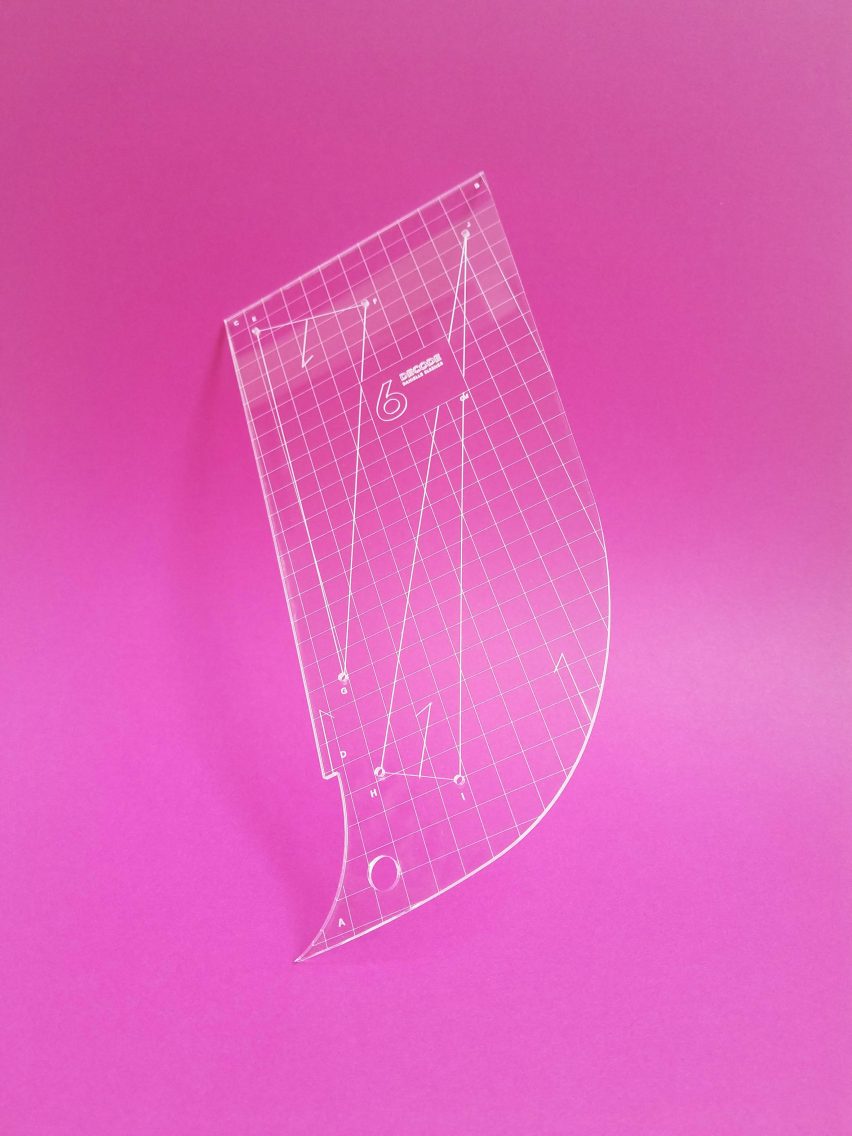
At the basis of A020 is a set of pattern masters, which Elsener developed during her time studying menswear design at the RCA.
These help designers approach a piece of fabric like a puzzle, in which any empty space can serve a purpose within the finished garment.
"The masters distil the zero-waste patterns I developed for myself down to their core proportions, lines and shapes," she said.
"They house all of the information needed for creation right in the palm of your hand while eliminating the need for paper patterns, which is another step in the direction towards a zero-waste system."
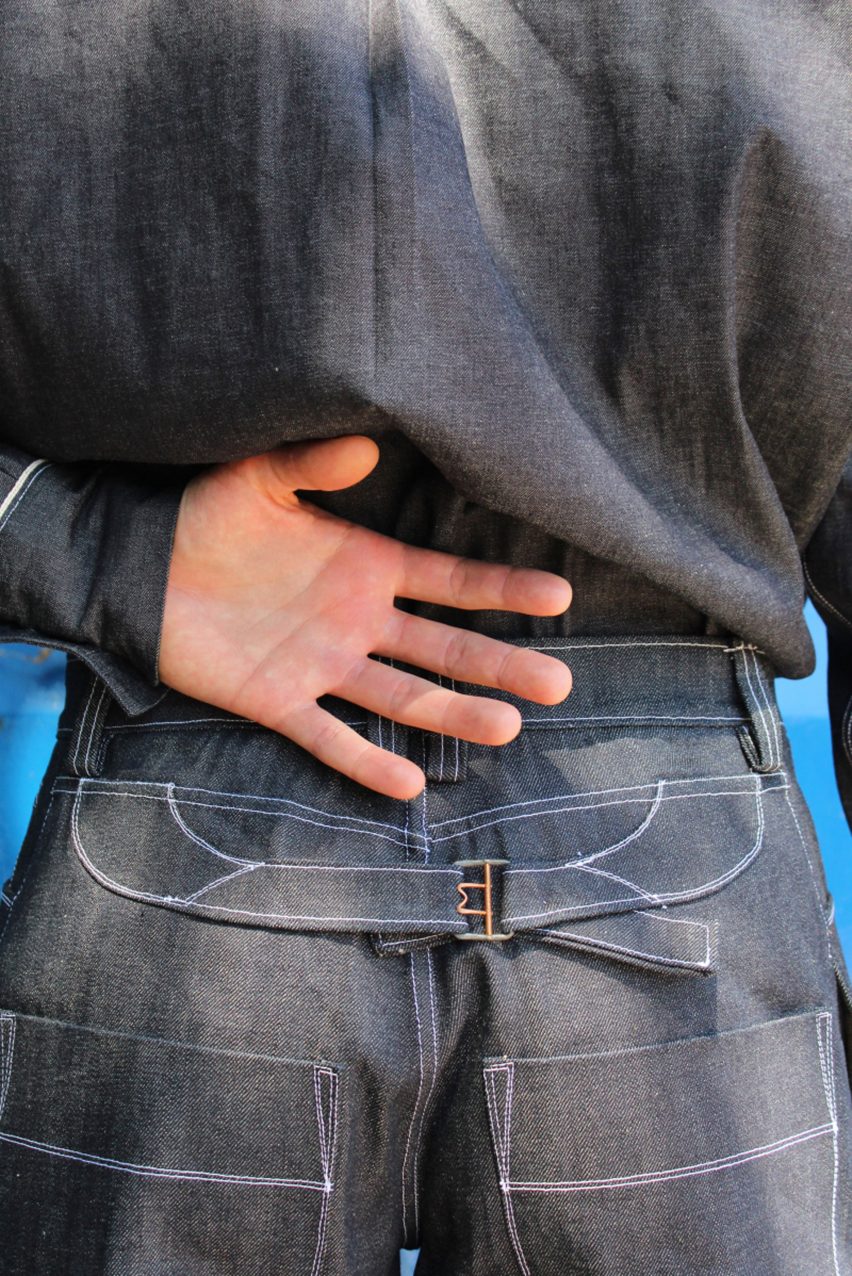
Around these tools, Elsener created a series of workshops that are used to educate other designers on her methodology as well as to collect feedback on how the masters and the system can be improved.
This feedback loop, she explained, is especially important when it comes to tackling the larger sphere of mass manufacturing and helping to make a sweeping overhaul of the production process seem easy and seamless.
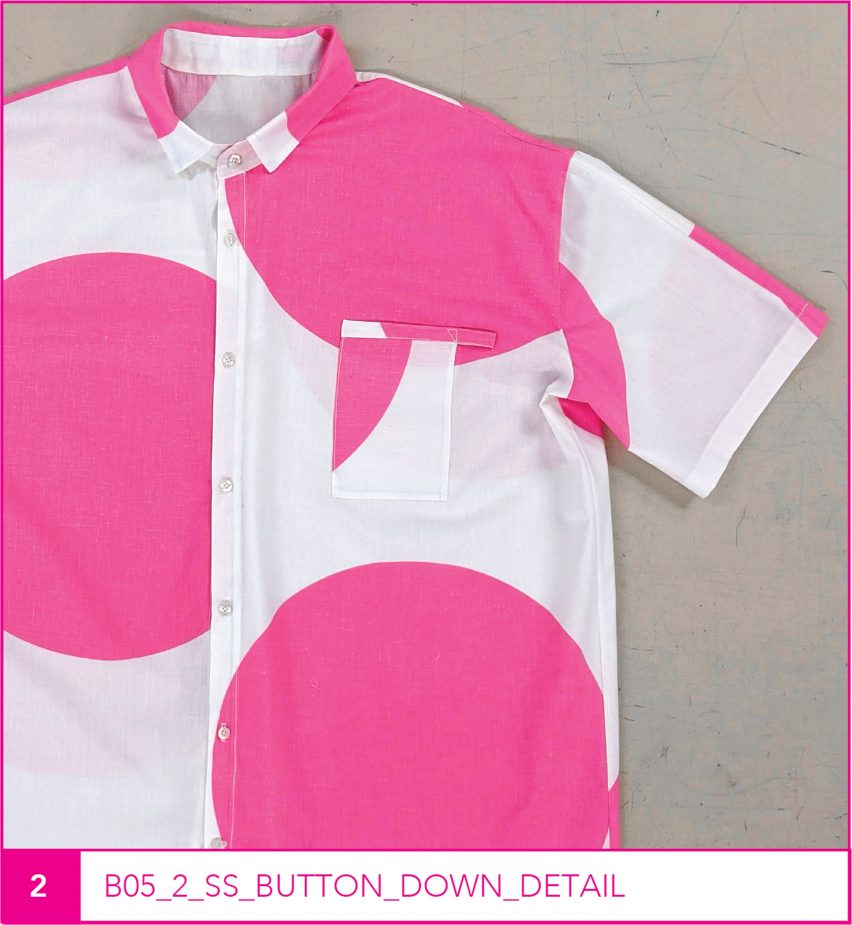
"Today's industry can be rigid and set in its ways, and manufacturers are unwilling or unable to make changes to their existing workflow to adapt to this new way of working," she said.
"This lack of flexibility has made it hard for decision-makers to take sustainable action, which is why A020 needs to be that bridge. I did the maths and saving just one per cent of material waste on a high-volume style could save 20 million kilograms of waste and an insane amount of money."
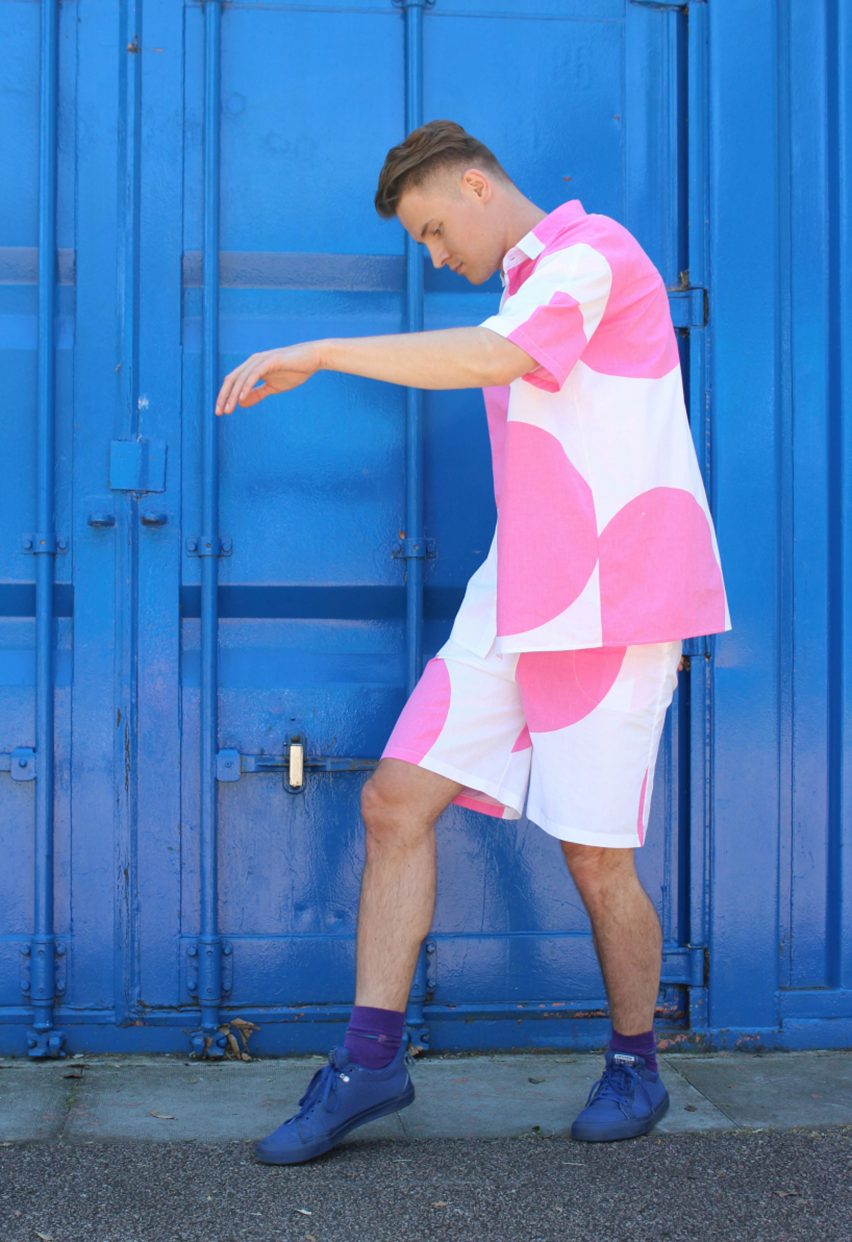
For her graduate collection, called Circling the Square, Elsener used the A020 system to create menswear pieces that visually showcase the design process through which they were made.
Rather than trying to assimilate the distinctive shapes created through this method of pattern cutting into a homogenous whole, the pieces use bold, block colours to draw attention to their different constituent elements.
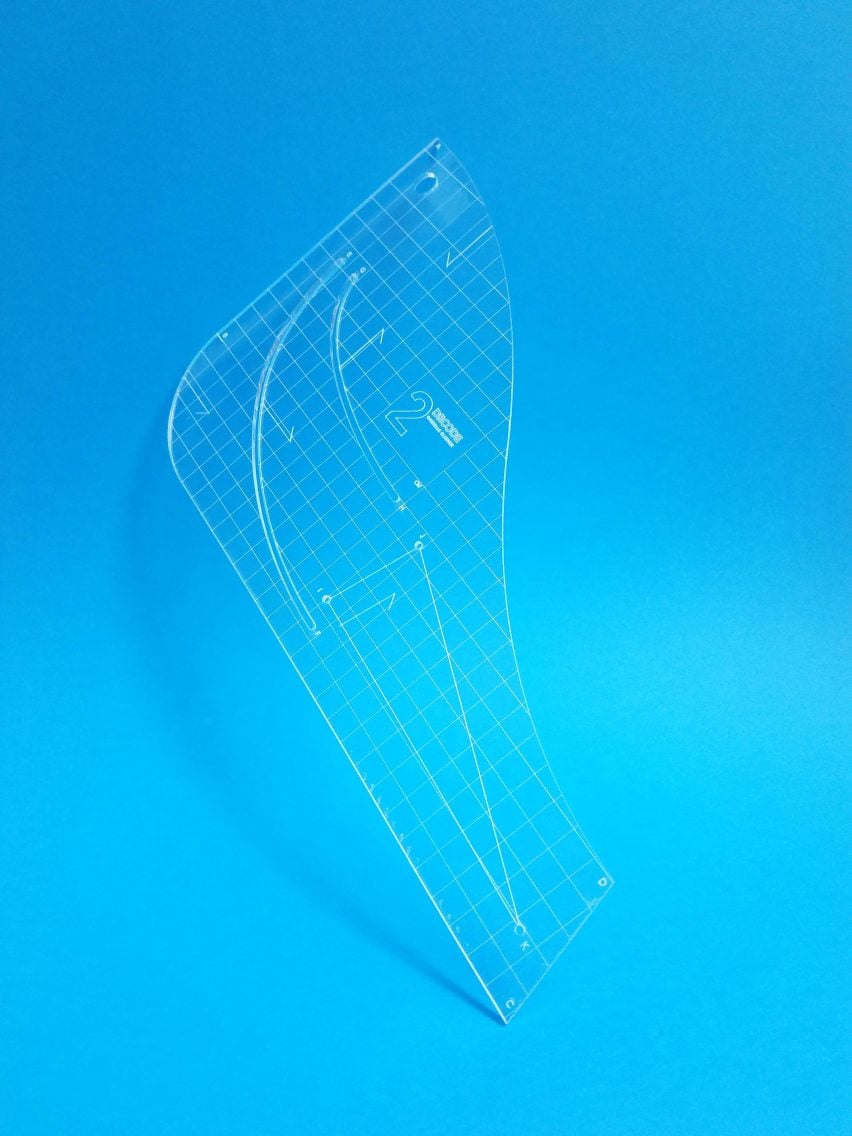
"Something as simple as using bold graphics, printing processes and colours alerts the viewer to the fact that there is something different about the garment," said the designer.
"Coded messages within the garments create a sense of discovery for the viewer and can hopefully lead to more in-depth explorations around the idea of zero-waste design."
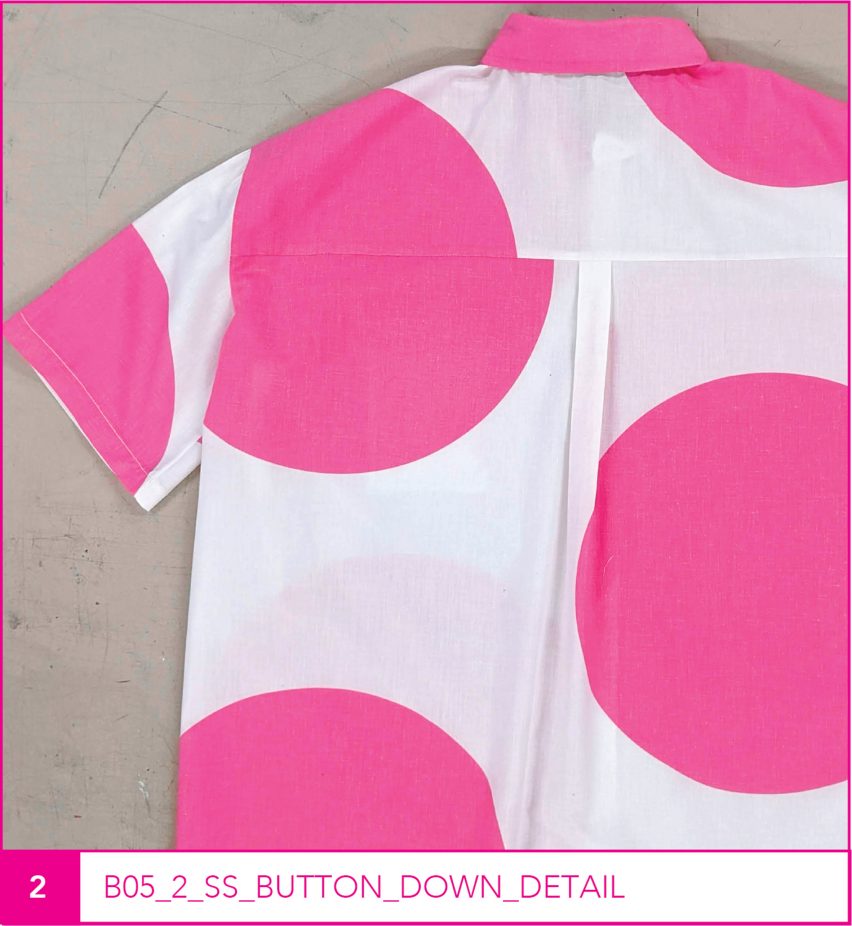
With the help of the €50,000 (£45,200) grant, which Elsener won as part of Abloh and Evian's Activate Movement competition, she hopes to build an A020 learning platform for designers.
In addition, she is planning to create mass manufacturing plans to help factories transition their existing workflows into zero-waste ones, as well as conceptualising a zero-waste factory from the ground up.
"This factory will allow for the seamless production of zero waste garments because it was designed by the person who also designs the garments," she explained. "It's a whole backwards way of thinking that is incredibly exciting and different."
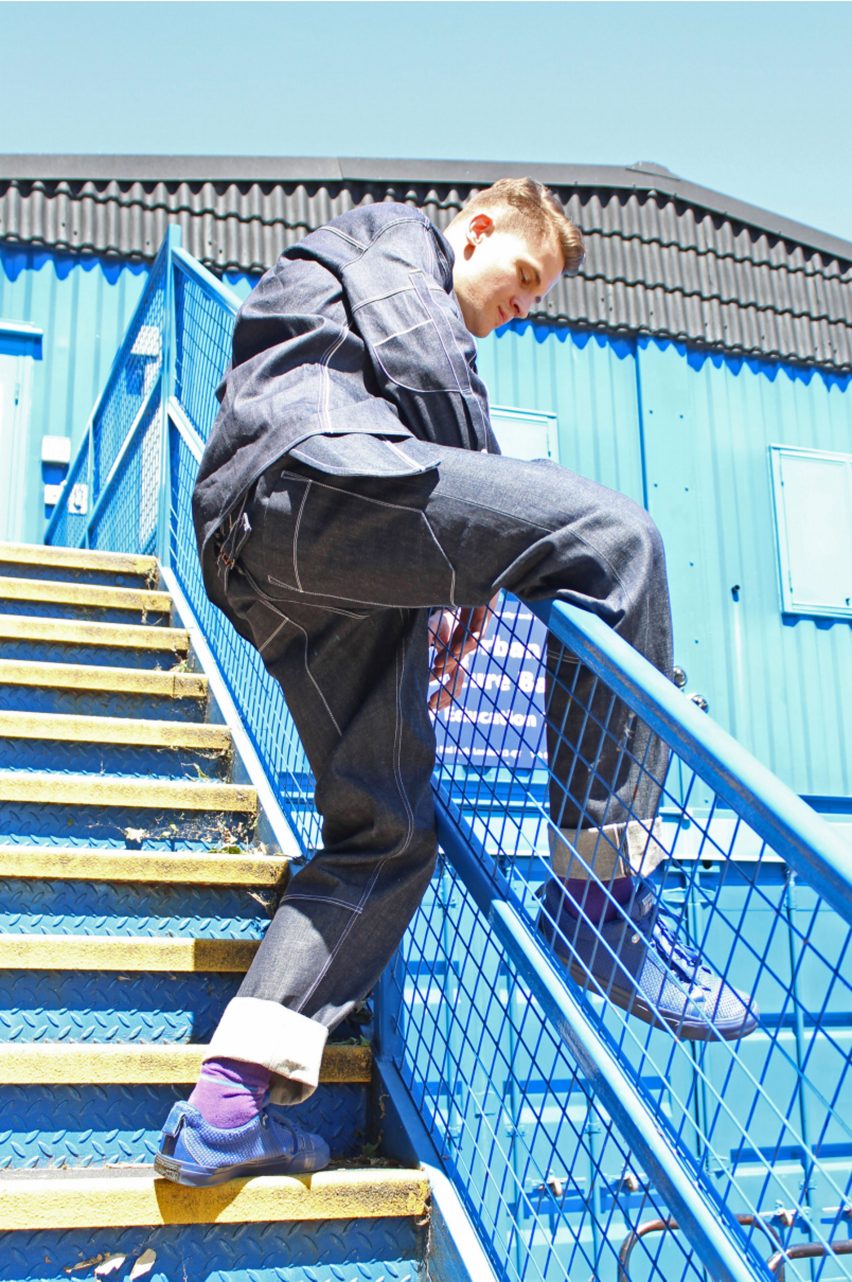
Activate Movement was a sustainable design competition that formed part of a larger push towards environmental responsibility by mineral water brand Evian.
As part of its efforts to become circular by 2025, the brand has named Abloh its Creative Advisor for Sustainable Innovation Design and has recently released its first label-free bottle made with recycled and recyclable plastic.
Imagery is courtesy of Sammy Selin.